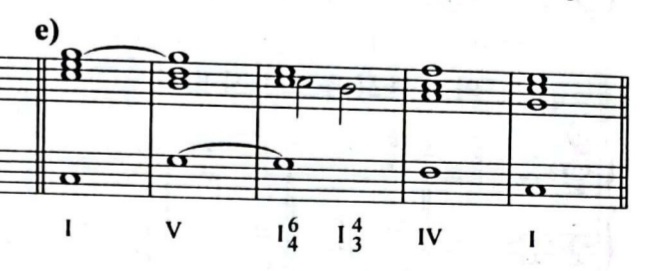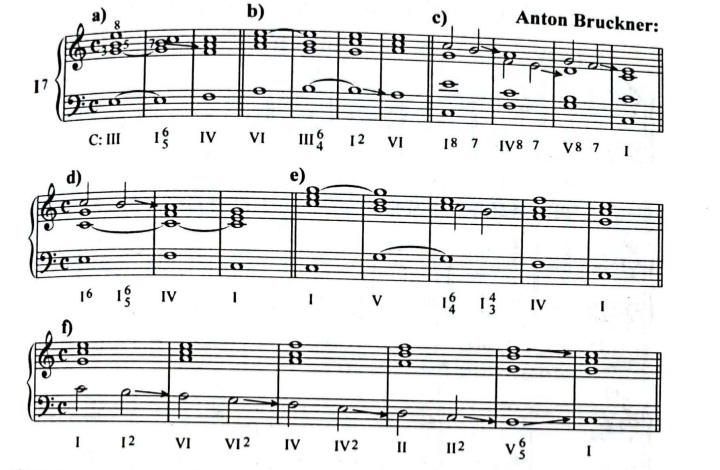Although the V chord "resolves" to the I chord, it resolves to the least stable inversion, I64. It is truly a I chord in this case, but doesn't function fully as a cadence because of the instability. This helps allow for one of the voices to proceed from C down to B, creating a I43 seventh chord, which according to Bruckner, operates as a dominant chord relative to the upcoming IV chord.
Ordinarily, V/IV would include a Bb, but Bruckner is claiming that the strong descending motion of C-B-A is "good enough" to create a dominant-type effect of resolving I43 to IV.


